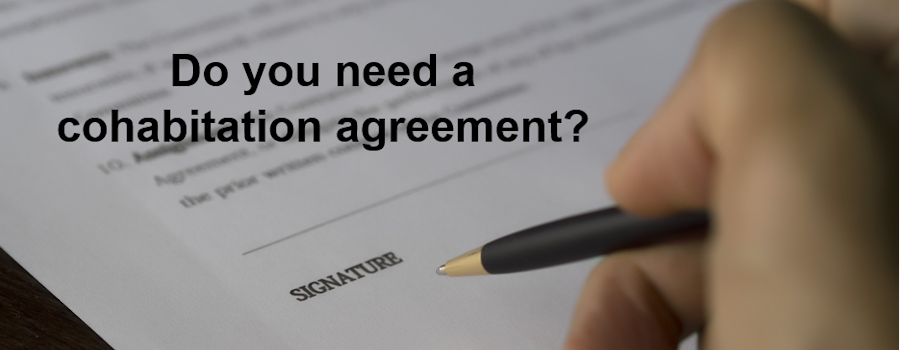When you move in together the last thing on your mind will be future problems. However, the nature of any relationship is that there are compromises and there are all kinds of reasons why a cohabitation agreement makes good sense.
A cohabitation agreement can set out the structure for your relationship in relation to assets, finances and the value of what you contribute. Things as simple as how bills will be paid and how much each partner contributes are better agreed before a row breaks out.
The easiest way is to look at some scenarios.
Janet and John have just moved in together. They’ve bought a home jointly, but, because Janet had owned her own flat previously, while John rented his place, Janet is able to put a bigger chunk into the deposit.
As far as the mortgage company is concerned they own the property jointly – and they’re not interested in who contributed what to that deposit payment.
A cohabitation agreement can lay out how this is reimbursed when the property is sold.
John has several pieces of antique furniture he has inherited from his grandparents and these are also included in the cohabitation agreement listed as his sole property, so there will be no dispute as to who they belong to if the relationship should break down.
Here’s another situation:
Darren and Sophie are buying a home together, but Sophie has a couple of blots on her financial history and the mortgage company won’t consider lending to her. To get around this Darren gets a mortgage in his name only, but Sophie contributes to the deposit and they share the mortgage payments.
The cohabitation agreement ensures that this is recorded and that, when the property is sold, Sophie gets her share of the profit.
What happens when someone moves into their partner’s existing home?
Joe and Alan are in this situation. Joe has owned his cottage for five years and loves it. He doesn’t want to move and suggests that Alan moves in rather than going to all the hassle of finding a new home.
Alan is a carpenter and the cottage does need some work doing, which he’s happy to take on.
A good cohabitation agreement will outline Alan’s situation, what his contribution will be, how that will be taken into account should the relationship end or if they move home and how any work he does will affect his situation in relation to the cottage.
Of course, there is no ‘right’ answer. Joe and Alan may decide that Joe retains the ownership of the cottage and Alan pays rent with no claim on the property. In this situation Joe and Alan also need to agree how any work done will be rewarded. The cohabitation agreement is not a standard document, but an agreement that is negotiated so both parties feel it’s fair.
These are just a few situations where a cohabitation agreement can alleviate arguments or resentment where one partner feels they’re not getting a fair deal. If you’re moving in together (or already have) the time to get these things agreed is before they become an issue, when you’re both thinking reasonably!

Do you need a cohabitation agreement?
- Post author:Liz Coombs
- Post published:27th November 2017
- Post category:Articles



